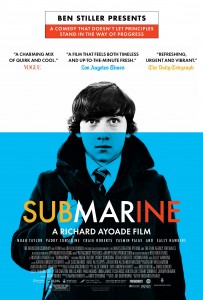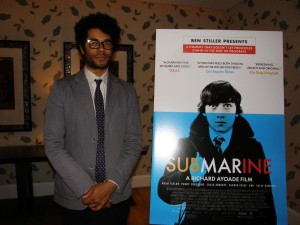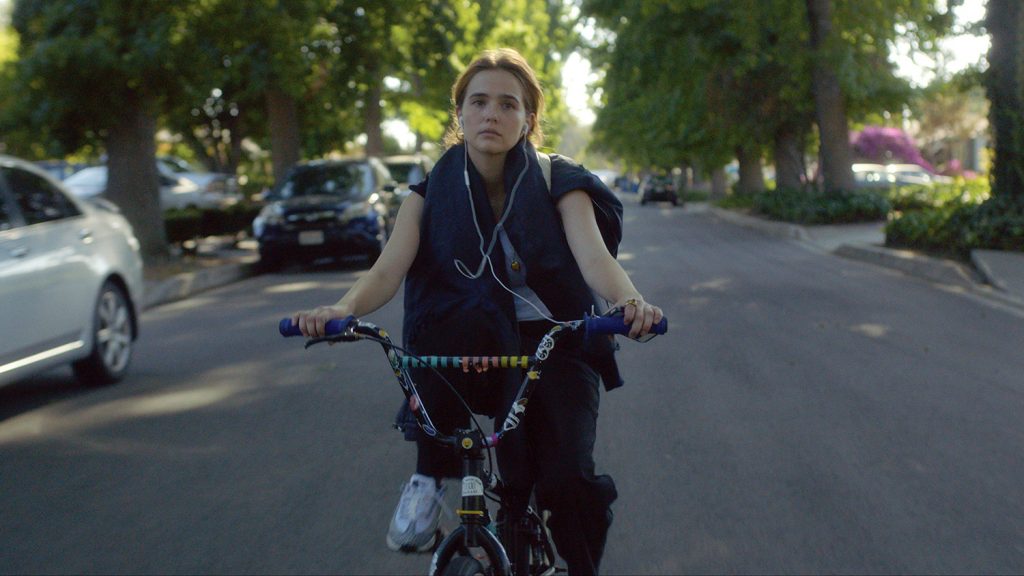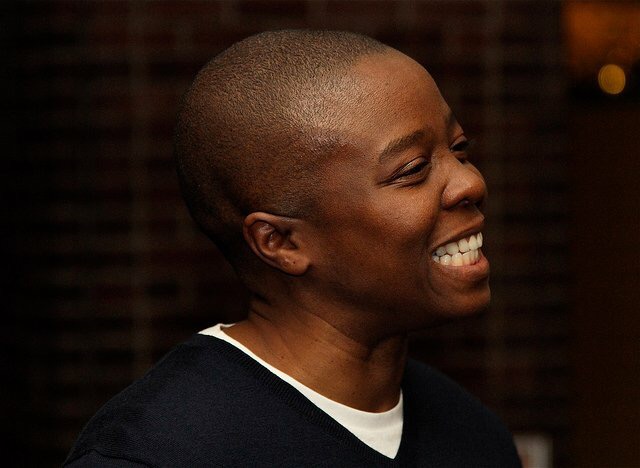 Written & directed by Richard Ayoade
Written & directed by Richard Ayoade
Edited by Chris Dickens & Nick Fenton
Cinematography by Erik Wilson
Executive Produced by Ben Stiller
The Weinstein Company
127 minutes. 2011. Rated R.
Why the film is called “Submarine” is anybody’s guess. It belongs to a genre of quirky coming-of-age dramedies, a genre of which there has been no shortage of entries. Some that come to mind include “Rushmore”, “Harold and Maude”, “Juno”, “The Squid and the Whale”, and “Napoleon Dynamite”.
This one is set in Wales in what I gather, by one of the main character’s hybrid spiked/mulleted hairstyle, is the 1980s.
The primary issue with “Submarine”, is that while the film launches, it never quite gathers any velocity or momentum. In more capable hands, this might not have prevented it from being a cult classic, but that’s not the case here.

Whether it was a result of direction or otherwise, the lead young actor playing Oliver Tate—a likeable enough Craig Roberts—doesn’t do anything to transcend the role. He remains expressionless throughout, never so much as cracking a smile.
The same can be said of his young love interest, Jordana, played by Yasmin Paige. While she does at least play coy, flirtatious, happy, and sad among other classic feelings, there’s just not enough meat on the bones.
What “Submarine” does have going for it, however, is a number of first-rate British actors among its supporting cast. Sally Hawkins plays Jill Tate, Oliver’s loving but confused mom, and Paddy Considine plays Graham Purvis, a former-actor turned cheesy spiritual guru.
There is also Noah Taylor as Lloyd, Oliver’s cerebral and passive father. Other than Considine, there’s not a lot for these actors to work with; the perspective of the film is mainly through young Oliver’s eyes, and he’s in most every scene.
Another of the film’s assets is its music. In the tradition of “Harold and Maude” and “The Graduate”, music plays a central role in the film. While those classic comedies had Cat Stevens and Simon & Garfunkel as musical contributors, Submarine boasts original songs by Arctic Monkeys’ lead singer and writer, Alex Turner.
The material is strong, though it doesn’t have quite the emotional power of those earlier two films. But that’s hardly a fair comparison. Those films are now iconic, deeply embedded in the pop culture. And while Submarine wears their influence on its sleeve, it never quite transcends, although perhaps it’s too soon to say.
The fact that it doesn’t compare is not just a reflection of the film’s own merits and failures. “Harold and Maude” (1971) and “The Graduate” (1967) each came out at a very specific moment in time. Both protagonists Harold Chasen and Benjamin Braddock represented a generation of young men figuring out their identity with the backdrop of Civil Rights and the Vietnam War.
“Submarine” arrives generations later and doesn’t attempt to do much more than represent one young man’s plight. And that’s perfectly fine. The film’s marketing department compares the film to the classics mentioned above in addition to such seminal literary works as The Catcher in the Rye. Such comparisons are probably a disservice to the film because it simultaneously raises the bar too high and also doesn’t allow the film to rest on its own results. Regardless, many people will see Submarine if only for the fact that it was bought by The Weinstein Company and provided an above-title executive producer in the form of Ben Stiller.
Article original appears: http://www.theepochtimes.com/n2/arts-entertainment/movie-review-submarine-57132.html





